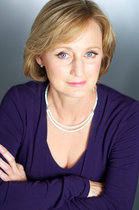PamelaJ1
I always said I'd be on HRT till I died but then the manufacturer stopped producing my pill. I was prescribed a different one, started bleeding so had a go at going cold turkey. I got really dry then, bought something called sylk but it didn't seem to work very well.
Next step was Evorel conti patches. Are they the same as yours Liz? Can't see 25 on the pack. I have been on them about a year but I started feeling nauseous so thought it may be the patches so I'm off again. Hello hot flushes almost immediately but the dryness hasn't really got going yet. When it does what can I do?
I am 64, been on hrt since I was 53 no other health problems at all. As I have sailed through life without any medical concerns I AM TAKING THIS PERSONALLY AND AM VERY CROSS?
Use of HRT fell quite dramatically in just before after the millennium, and quite a few brands were discontinued. Though some women managed to
find a suitable alternative, others, like you, have struggled to find one that works well for them and have given up. Now you are 64, I wouldn’t suggest you start trying HRT again, but rather find a solution to your vaginal dryness. This is caused by lack of oestrogen, which means the genital tissues lose a lot of their moisture. This means that not only is sex uncomfortable, but the area can sometimes feel slightly itchy as well. The most effective treatment is to replace the oestrogen using either a cream or pessaries, that are just used in the genital area. I usually prescribe oestradiol pessaries, which initially are inserted into the vagina every day for 2 weeks, then twice a week. They really can make a big difference, and don’t carry any of the risks ( such as breast cancer or build up of the lining of the womb ) associated with HRT. They are available on prescription from your GP. If despite using this you still feel a little dry, then you could try in addition a non-hormonal treatment, such as Replens, which is available from chemists.


